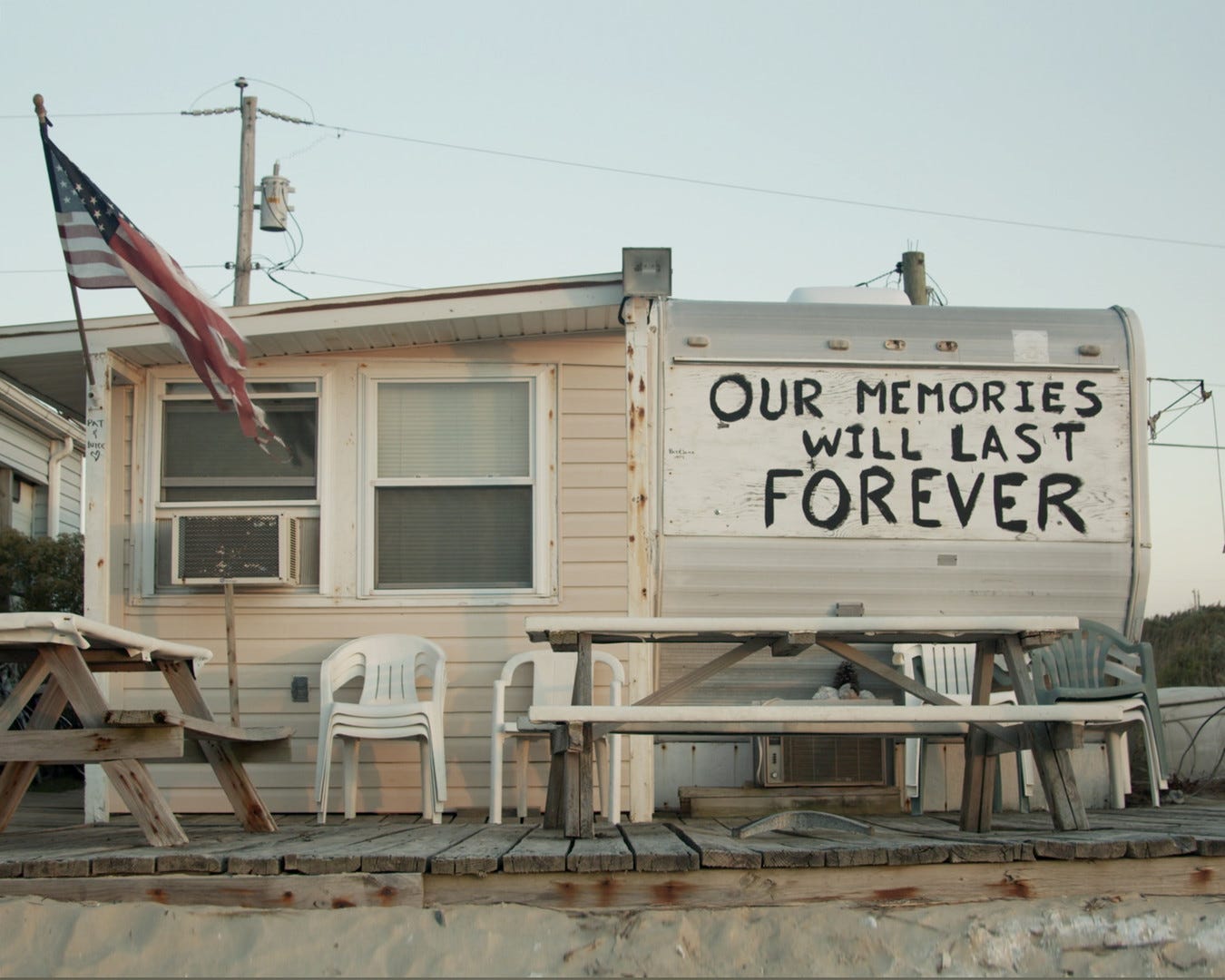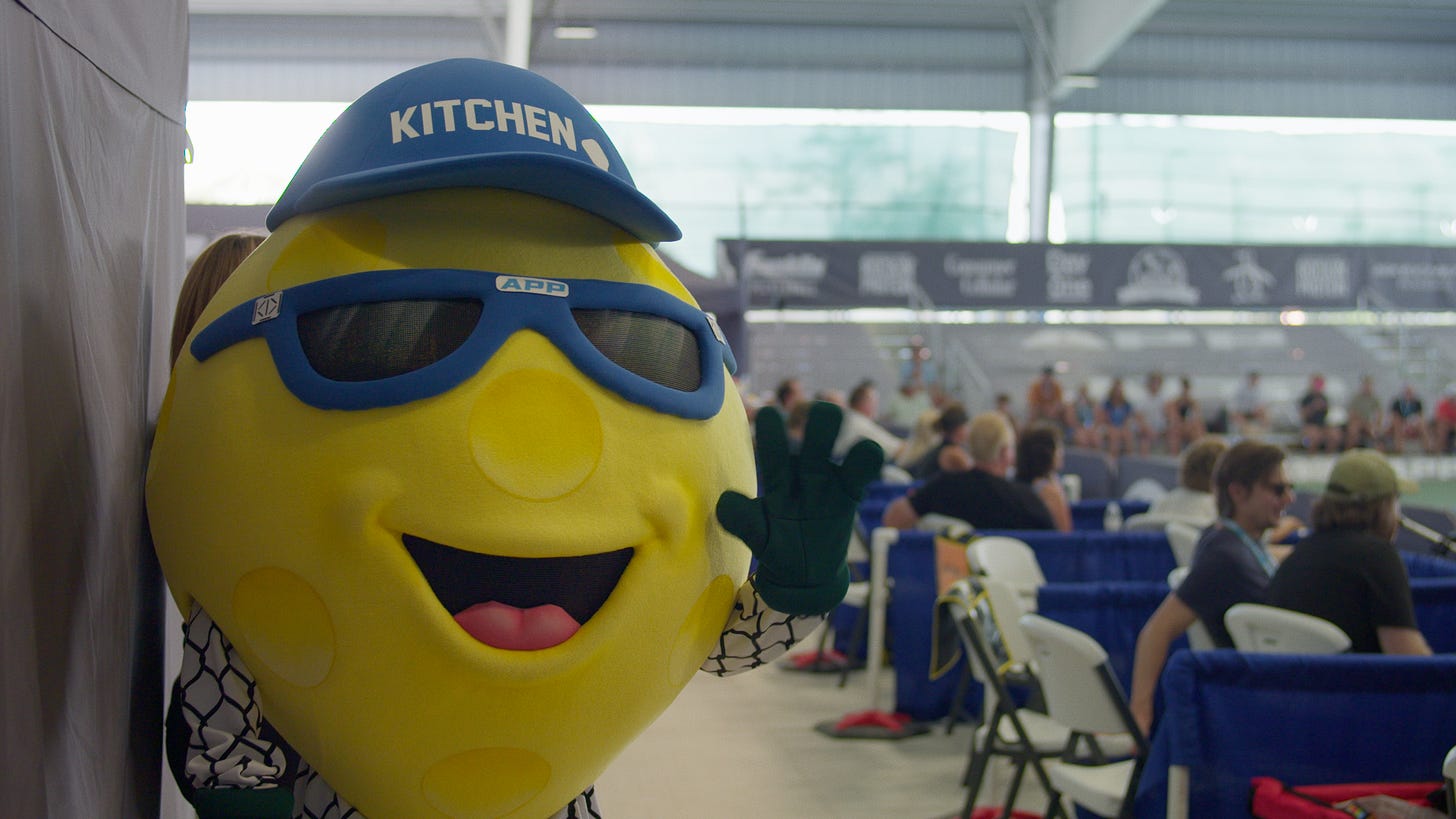Special Coverage: The 2024 San Francisco Documentary Festival, Part 2
Two documentaries that focus on different kinds of highs and lows.
Dear Moviegoers,
Occasionally, I’ll review films from beyond the bayous of Louisiana and the Gulf South.
Well, more than occasionally. Often.
This time, I’ve been invited to give some thoughts on some of the films from this year’s San Francisco Documentary Festival, running virtually and in-person from now to June 9th.
I chose eight films from a grand slate of diverse cinema, two of which will be covered in this post. For more information and to buy tickets, visit the official website. Hurry before the event ends.
Enjoy.
And, in case you missed it, here is Part 1 of the review series:
Man, can Amy Nicholson find the most beautiful shots to get from a real-world scenario. Her film Happy Campers is made up entirely of beautiful shots, the kind that tells stories on their own, define the people that are featured, and move our hearts to beat at their fullest capacity. It may seem pretty difficult to gather such serendipitous compositions when shooting footage in any area, but the setting that Amy Nicholson has found, a happy-go-lucky waterside community, is completely covered, head to toe, with personality. She makes everything look pretty, makes the tale seem vast, and makes cinematography appear easy. That’s magic. Pure magic.
Happy Campers is about the last days of a trailer park neighborhood in Virginia, where seafood can be caught just feet away from your home and where smiles can be seen on every face. These are no misfits or weirdos or outcasts, but rather individuals and families who have found their collective oasis, their piece of peace as it were. As the clock winds down on their residences and the plans for re-development kick-off, everyone gets together for various hangouts and parties. Beer flows like waterfalls, truck beds are made into pools, and shirts fly off in the hot sun when playing horseshoes.
If this wasn’t going to be their final time with one another, the fun that’s had would’ve just been another routine day. Indeed, these people are happy, and not the manic kind. It’s all genuine, and so is the movie. Amy Nicholson captures all of the final moments as if Happy Campers weren’t a straight documentary, but a narrative in the way that the great Bloody Nose, Empty Pockets is. Talking head interviews occur, people recognize and acknowledge the camera, but all behave so naturally and so carefree. This is who they are, filmmaking be damned. This is their story, and it’s gonna play out however it may.
There’s a recurring motif of raised flags throughout Happy Campers, from Old Glory to Corona Beer advertisements. Usually in the far-off background, but always in the frame and always of significance. The flags are never really interacted with except in one or two instances of putting them up poles. There’s something about setting such things in place for others to see from long distances away, and never having to look up to know that they’re still waving in the wind. It’s not taken for granted in a bad way, representing instead a way of life that is richer than most. They’re here, they’re there, and that’s nice to know. 4/5
Pickleball. This is what we’ve all come to? Honestly, watching two parents and their star athlete child pray to Jesus for their wealth to be maintained and for the bubble of the new sports craze that is pickleball to never burst is a bit…well, a lot. Dreambreaker: A Pickleball Story is absolutely “a lot,” most of which is made up of behind-the-scenes corporate back and forth that’s less relative to the game itself and more of a neurotic breakdown involving money and status. For a roughly ninety-minute story of athletes who might as well be portrayed as social media influencers, as told by a video blogging hippie who lives in a yurt, expectations of what a sports documentary ought to be should be left behind. Too oddball to know how best to be presented, but too interesting to be unattractive, Dreambreaker is a strange and compelling film. About people who just want to play and have fun, about businessmen getting in over their heads, and about self-branding and representation.
There are moments when men with beer guts play alongside tennis greats, paddling at plastic balls to the thrill of enthusiastic spectators and potential sponsors. Amid conversations about professional contracts and organizational mergers that may or may not happen, is a dream that gets lost in the court. One that envisioned a compound for athletes to compete, to live, and to make a living. No wonder a lackadaisical guy living in the woods in a yurt has taken an interest in this thing. The dream of a sports utopia that pulled me in at the beginning goes away too quickly once profit and popularity are thrown into the mix. People aren’t watching these games on TV, but they are showing up in person. And with that, money can be made. And with money on the line, things can get nasty.
What was about a sport and then about the stars, eventually became about the owners and the investors and the media coverage - which happened primarily online over Zoom-like podcasts, with “reporters” likely on camera while wearing sweatpants. It’s difficult for me to see this documentary as being dramatic in some grand fashion, but somehow it is just that, only featuring people, players, and puppets that want to succeed so desperately in a fad so accessible that they’ve turned into so legitimate. Is this film really a “Dreambreaker?” No, but it does ask questions that the subjects can’t answer. At least, not at the moment. 3/5







